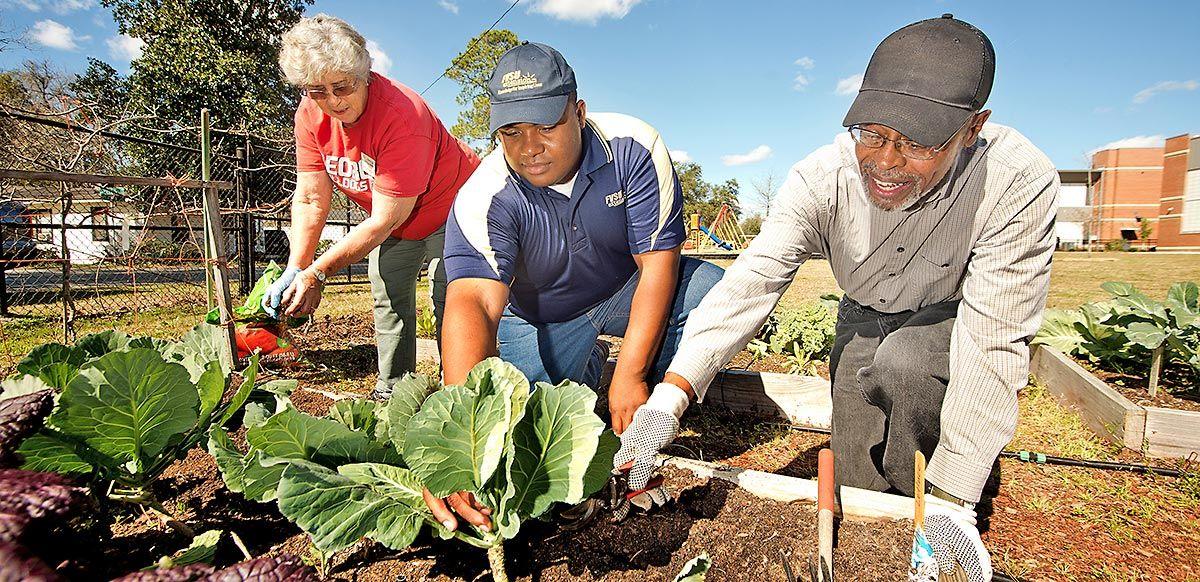Fort Valley State University’s Cooperative Extension Program is helping volunteer residents of Lowndes County cultivate community gardens through the Master Gardener program.
Master Gardener is a program offered mostly through Land Grant Universities that provides volunteers in local communities with specialized horticultural training. With this knowledge, the volunteers conduct research, hold lectures and develop community gardens that provide produce to its residents.
Joshua Dawson, FVSU’s Lowndes County extension agent, oversees the Master Gardener program in Lowndes. Presently, eight schools in Lowndes County are involved. Participating students learn how to grow food and where it comes from through Master Gardener Volunteers. Students then take produce grown in the gardens to their school cafeterias or their homes for consumption.
Annie Barbas, a Lowndes County retired teacher and landscaper and John Gaston a retired dean at Valdosta State University, both explain why they are involved in the Master Gardener Program and answer a few questions about participating in the program.
How did you find out about the Master Gardener program in Lowndes County?
Barbas: “We had a new county agent about nine years ago. He started a successful Master Gardener Program in Camden County, and he introduced it to Lowndes County. I took the initial course and have been a part of it ever since.”
Why did you want to get involved with the Master Gardener program?
Gaston: “I’ve always been interested in growing things. I’ve always had some kind of plant around me regardless of where I was. I’ve always had plants in the office and all around the house. It was something that I enjoyed, and something that I always wanted to do when I retired. It is the ideal situation for me.”
How long have you been involved with the Master Gardner program?
Barbas: “I have been involved with the Master Gardener Program since 2007.”
Gaston: “I just finished two years.”
What plants do you prefer to grow as a Master Gardener?
Gaston: “That’s pretty difficult because I like so many things. I like gardening vegetables, but I also play around with bonsai, which are little Japanese trees in a pot.”
How many schools are you involved with as a Master Gardener?
Barbas: “I’m working with two middle schools, an alternative school and five elementary schools.”
Gaston: “I’m assigned to one school, which is an elementary school. But we (Master Gardener volunteers) help out wherever help is needed.”
In your opinion, what are the benefits of participating in the Master Gardener program?
Gaston: “Being able to educate adults and youth about nutrition and healthy living and share with many of them where we get food and plants. They (children) think everything comes from Wal-Mart,” Gaston said. Gaston told of a lighthearted instance where he taught a child about gardening. “The school I’m involved with has a kindergarten class, and they (children) come out and ask questions. One day I was watering the garden, and a little boy stood there, looked at me for a while and asked why are you making mud? I explained to him that I was watering plants.”
If an individual asks you about being involved or becoming a Master Gardener, how would you convince them to join you in participating in the program?
Barbas: “We generally try to ask them to come to meetings as our guests or come if we have special activities. Sometimes, I just take them by the hand and say, ‘Let me show you what we are doing at some of the schools,’ and that works too.”
For more information about the Master Gardener Program, contact your local county Extension agent.

